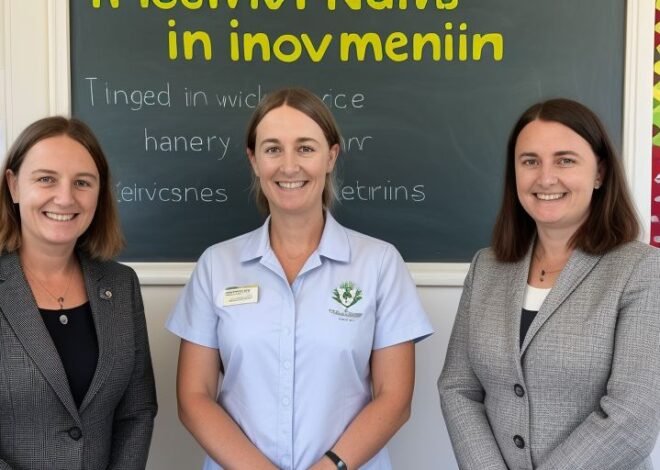
Durban Launches Innovative Diabetes Prevention Program
Durban today launched a unique plan to preventing what is widely regarded as type 2 diabetes in the region. The programme being launched today by the eThekwini Municipality, in collaboration with the KwaZulu-Natal Department of Health gives one of South Africa’s significant health problems a many-faceted solution.
The centerpiece of the campaign is a city-wide screening program, through which the organizers will freely conduct diabetes risk cheques for all adults in Durban over the age of 18. It will be possible to schedule time for health cheque-ups without having to go around seeking a doctor’s appointment; mobile units for screening shall be stationed at community centers, shopping malls, or even our places of work.
“Early detection is crucial in preventing the onset of type 2 diabetes,” said Dr. Sandile Tshabalala, Head of the KwaZulu-Natal Department of Health. “By bringing screenings directly to the community, we hope to identify those at risk before the disease develops and intervene with lifestyle modifications.”
High-risk participants from the screening section will be participated in a rigorous diabetes prevention programme. This 12-month designed programme, borrowed from developed nations, will entail features like; one to one advice on diet, physical activities, and behaviour modification.
“We know that simple changes in diet and physical activity can dramatically reduce the risk of developing type 2 diabetes,” said Ntokozo Mkhize, a dietitian involved in designing the program. “Our goal is to empower people with the knowledge and skills they need to make lasting changes.”
It also has vast public awareness engagements as a major part of the given initiative. We shall organize a series of workshops and community engagements all across Durban in order to popularise the problem of diabetes and ways to prevent it. Moreover, the new smartphone application will help to specify the daily ratio, give some recommendations connected to a healthy way of life, as well as propose exercises.
Looking at the part of environment that leads to the development of diabetes, the city will engage the traders in providing healthy foods. Restaurants participating in the program will offer special “diabetes-friendly” menu items, while grocery stores will feature prominent displays of low-glycemic foods.
“Creating a healthier food environment is essential in supporting individual efforts to prevent diabetes,” said Councillor Zandile Gumede, Mayor of eThekwini Municipality. “We’re working to make the healthy choice the easy choice for our residents.”
It also targets children and adolescent since type 2 diabetes is on the rise among the young population. There will be new health education curriculum with Durban schools, and school canteens will have to sell healthier foods.
“By instilling healthy habits early, we can set the next generation on a path to better health,” said Sibongiseni Dhlomo, KwaZulu-Natal MEC for Education.
The amount allocated to the implementation of the initiative is pegged at R300 million for five years sourced form the municipal, provincial and private sectors. Authorities estimate the programme could reduce the incidence of type 2 diabetes by as much as 10,000 new diagnoses per year once the programme is operating at capacity.
According to health experts, Durban has been able to incorporate a wide range of strategies. “This program addresses diabetes prevention from multiple angles – individual behavior, community education, and environmental factors,” said Professor Ayesha Motala, a diabetes researcher at the University of KwaZulu-Natal. “It’s exactly the kind of holistic strategy we need to tackle this epidemic.”
However, there are objections, saying that the program is too weak in terms of fighting the root causes of the increased diabetes rates in distinct socioeconomic groups. “While this program is a step in the right direction, we also need policies to address poverty, food insecurity, and lack of access to recreational spaces,” said Dr. Imran Keeka, DA KZN Spokesperson on Health.
Mayor Gumede dismissed such fears but pointed out that the program is only one of the strategies aimed at enhancing the city’s health. “We recognize that diabetes prevention is intimately linked with other social and economic issues,” she said. This initiative complements our ongoing efforts to improve living conditions and reduce inequality across Durban.”
It will be launched next month with the diabetes prevention programme first launching the mobile screening units. It is estimated that all elements of the programme will be online by early part of the year 2025. Screening, programme enrolment as well as overall long-term health status of the residents will be closely measured and evaluated to measure the success of this undertaking and the future direction of similar additional programmes.
This innovative program will ensure that Durban is among the first cities to tackle this diabetes scourge that has become rampant across many parts of South Africa and many developing countries. As cities all over the world continue to experience the dreadful effects of NCDs, this type of analysis may hold important lessons for how Durban might avoid such tolls at the municipal level.


